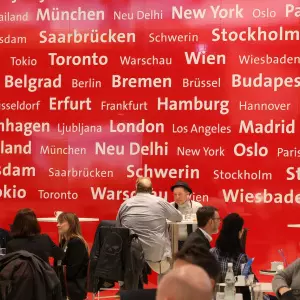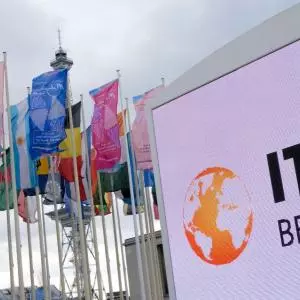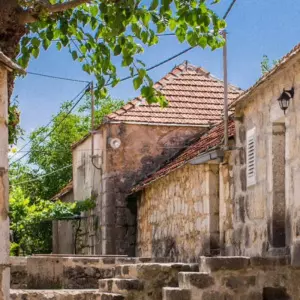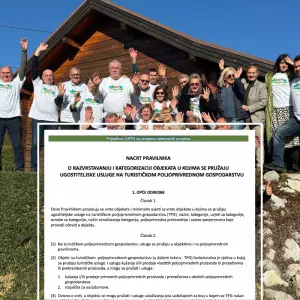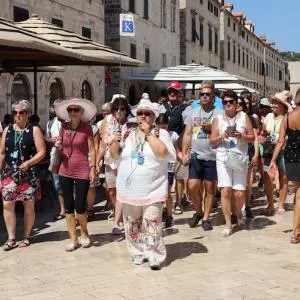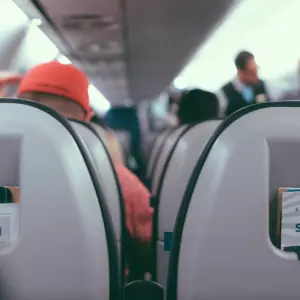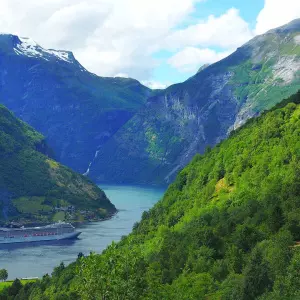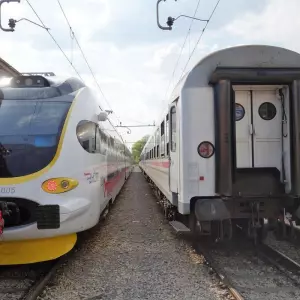Vulnerability of rural areas
Rural areas throughout Europe, especially in the Western Balkans, are strongly influenced by emigration. The population emigrates first to the capitals of regions and countries and then to one of the EU member states.
As a result, there are problems with the disappearance of the population in rural areas and excessive pressure on the infrastructure of the capitals of regions and states. When the number of working, reproductive population in an area falls below the limit of self-sustainability, then we are talking about demographic collapse and the demise of a region, place, village.
The universal features of a rural area (according to Ashley and Maxwell, 2001) are:
- An area where human settlements and infrastructure occupy a small part of the landscape;
- An area in which the natural environment is characterized by meadows, forests, mountains or deserts;
- Smaller settlements (average 5-10.000 inhabitants);
- Premises where most people work in family households;
- The price of land is relatively lower than in urban areas;
- Places where economic activities are burdened by increased costs, primarily due to the distance from cities and inadequate infrastructure.
There is no life without people
Without people, there is no life, no experience that today's tourists are looking for. Without an active, reproductive population, there is no stable income tax income, communal taxes for the local community. Without these revenues, the municipality cannot function.
That is why it is important to encourage the stay and existence of the domicile population first and then the return of evicted families. The family is the basic social and economic "cell" of society. Due to families with children, kindergartens and schools are being opened, new jobs are being created, and services that every household needs are being launched. In such a situation, we also have generational solidarity. Parents take care of their children and when children grow up and parents grow old, then children take care of their parents. The life cycle is closed in a dignified way, life has a quality worthy of a human being.
Economic activities in rural areas are mostly related to agriculture, livestock, farming, vegetable growing, fruit growing, aquaculture, wood processing in the mountains and crafts. Today, an increasing share of "telecommuting" related to the digital economy should be added.
Of these primary economic activities, the population covers the basic necessities of life for a modest way of life. There is a lack of higher incomes that would enable quality education of family members, achieving a higher standard of housing and finally travel to other parts of the region, country, continent and other continents.
Tourism as added value
The development of tourism in rural areas provides precisely this added value, such an important additional income. Thanks to a combination of primary economic activities and tourism, it is also possible to achieve a standard of living in rural areas that was once only possible in cities. Through tourist traffic, the municipality also participates in significantly higher revenues, so investments in a higher communal standard become possible.
Tourism needs good final products such as processed milk, meat and cured meat products, wool clothing, wooden furniture and the like. In addition to traditional products, tourism needs the services of all activities related to the construction and maintenance of facilities, digital technology, transport and the like.
Due to the demand created by tourism, primary and secondary economic activities are improving. Final products of good quality and design achieve a good price and become sought after outside the tourist place. Through tourism, new products and services are built to the level of competitiveness in the wider market.
Alpine model of rural development
Based on this strategy of development of rural, especially hilly and mountainous areas, European Alpine countries managed to revitalize areas with very unfavorable living conditions after the plague of the Second World War. Tourism has brought life back and made it more enjoyable.
The type of tourism that has helped the recovery of the hilly and mountainous regions of Austria, Italy, Bavaria, France, Switzerland is tourism based on the local community, on the local population. In these areas, accommodation is almost entirely organized as household accommodation, from rooms, through apartments to small family hotels.
Today, alpine tourism is a globally recognized brand. Mountains are a symbol of vitality, regeneration of body and mind. The mountains are the last oases of pure nature, clean air and the balance of life of people with the environment. That is why we all have a great responsibility to ensure that the planned and implemented development in these fragile ecosystems is sustainable. When planning sustainable development, we start from a man who lives in such an area, his needs but also his lifestyle. These are the main elements of the development of tourism, which we call family tourism.
Family accommodation keeps people going
The basic service of sustainable, family tourism is accommodation. We call such accommodation family accommodation. Legislation has recognized this type of accommodation as accommodation in the household and on the family farm.
Why would you decide to engage in this activity? What do you achieve with that? Why not just go "belly for bread" if we want a better life? Of course these options always stand. However, man is a social and emotional being, so the happiness of every person is related to socializing with other people. The language we communicate with, the songs we sing, the jokes we make, the customs that bring us together… it is a mosaic of happiness and happiness is greatest in the homeland. Many emigrants around the world, after many years spent away from home, are beginning to feel this "pain for their homeland".
If we can ensure a good standard of living and an income with which we can travel the world as free people, why not opt for such an approach? The Croatian coast and islands would have been without population a long time ago if there was no tourism, especially family tourism. And I am one of those who stayed to live on my island thanks to the tourism that left my parents and grandparents. I worked, studied and traveled thanks to tourism. Today, my family also lives decently and we are happy in our community.
Aware of all these facts, back in 1997 we founded a professional association of family accommodation at the Croatian Chamber of Commerce. The family tourism community of the Croatian Chamber of Commerce, as it is called today, is the most massive and one of the most influential such organizations in Europe. ZOT HGK is a member of the European Association of Family Accommodation, EHHAe based in Brussels.
An example of good practice
In 2021, the pandemic year, there were 13,8 million arrivals and 84,1 million overnight stays in Croatia. Compared to the results of the record, pre-pandemic, 2019, in 2021, 67 percent of arrivals and 77 percent of overnight stays in 2019 were achieved. According to the type of accommodation, most overnight stays were realized in households (32,1 million). Almost half less (17,4 million) and (15,7 million) turnover was generated in campsites and hotels, respectively, than in households.
Finally, according to the just-completed 2021 census, positive demographic rates are recorded on the island of Krk. That growth is not great, a total of about 3% in 10 years. However, according to the overall results in Croatia (-9,25%) and especially in areas where there has been no stronger development of family tourism, the island of Krk has reason for optimism.
Good transport connections and well-developed tourism, mostly family tourism, bring good results. The island of Krk participates with 6% in the total tourist traffic of Croatia and 35% in the total tourist traffic of Kvarner, Primorje - Gorski Kotar County.
Tourism does not tolerate phobias, intolerance, destruction of the environment, pollution, conflicts and wars. There are no grumpy, neglected, messy people in tourism. These are goals that everyone would want.
Be proud of your region, your customs, culture, your way of life and be ready to share it with tourists, with guests you will receive as best friends. Good luck!
Author: Nedo Pinezić
Cover photo: Rosalind Chang

